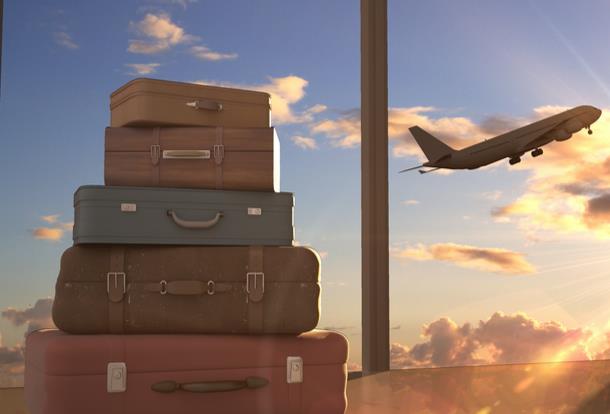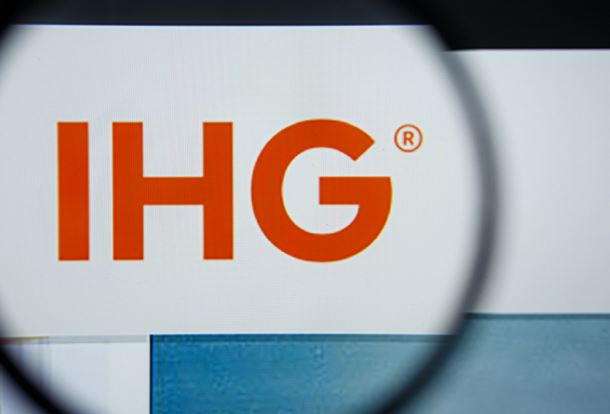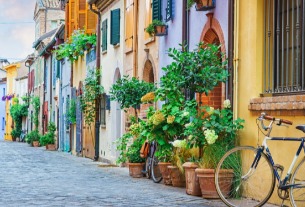Sean Malin and his friends, like many Americans this summer, were desperate to get the heck out of (quarantine) Dodge despite the coronavirus pandemic.
"We needed to vacation somewhere," Malin, 28, told USA TODAY.
But they didn't want to go just anywhere over July Fourth weekend. They were looking for safety and seclusion, but also weren't willing to drive more than two or three hours away.
Their choice mirrors a trend in the industry as travelers have sought out socially distanced excursions within half a day's drive from home. Some are also opting to stay in private homes where they can prepare their own food and won't come into contact with strangers from outside their quarantine bubble.
And traditional hotels have paid the price, literally. For the week ending Aug. 15, U.S. weekly hotel occupancy occupancy was down 30% from the same period in 2019, according to data firm STR.
The news is not all bad for hotels: Occupancy topped 50% for the first time since March, and it has ticked up for 17 of the past 18 weeks, though growth in demand for rooms has slowed.
Still, short-term rentals have bounced back faster since the coronavirus pandemic pummeled travel interest in March. They have also benefited from a weakened business travel environment and a shift in travel preferences to more rural and remote areas where guests can opt for longer stays.
Which is safer: A hotel or short-term rental?
Both hotels and short-term rentals have announced extensive cleaning measures and social distancing procedures to reassure cautious travelers that it's safe to stay there during COVID-19.
Augusto Amorim, 41, always stays at hotels when he travels.
"Especially under the current circumstances, I'd expect a hotel to be cleaner," said Amorim, a market researcher from Detroit. "I think that chains like Hilton, Accor, SPG, etc., have more strict rules in place and that they're holding each property accountable."
Still, when he stayed at the Swissotel in Chicago over the July Fourth weekend, he bought his own supplies and cleaned the entire room anyway.
But Dr. Keith Armitage, a professor at the Case Western School of Medicine in Cleveland, told the USA TODAY Network earlier this summer that a home rental might actually be safer.
"The ideal situation would be an Airbnb or a rental that had been empty for a couple of days," he said.
Regardless of which is safer, the data is clear: Short-term rentals are more popular right now.
'An unequal impact on hotel occupancy'
Hotels have traditionally had higher occupancy rates than short-term rentals, according to a global analysis of 27 markets around the world from January 2019 through June 2020. Data firms STR and AirDNA, which analyze short-term rental trends, worked together on the analysis.
But then the pandemic struck. Hotel occupancy fell 77.3% at the end of March compared with the previous year. Rental occupancy fared better, dipping 45.1% for studio and one-bedroom rentals, and 46.2% for two- or more bedroom rentals.
The crisis for hotels was twofold.
Revenues fell year-on-year in the second quarter by 54% at Wyndham, 72% at Marriott and 77% at Hilton, three of the world’s biggest hotel chains. Airbnb, the world biggest home-sharing platform, did no better, with a tumble of 70%.
The average length of a guest stay has ticked up 58% during the pandemic.
This thinking played out earlier in the pandemic. Omer Rabin, property management software company Guesty's managing director of the Americas, told USA TODAY earlier this year about the increasing length of stay trend. Historically, the average length of stay was consistent at around 3.6 to 4.2 days. That average shot up to an unprecedented eight days at the end of March.
A big question is whether the likes of Airbnb are really taking market share from the core business of hotel chains: one-night stays and business travellers. Demand from the latter has been devastated by the pandemic. Events and conventions, former money-spinners, are currently dead. But the hotel brands are confident that if and when business travel resumes, visitors will choose hotels again. “There will always be some form of business interaction that can’t be done over a Zoom call,” says Phil Cordell, Hilton’s global head of new brand development.
Read original article




